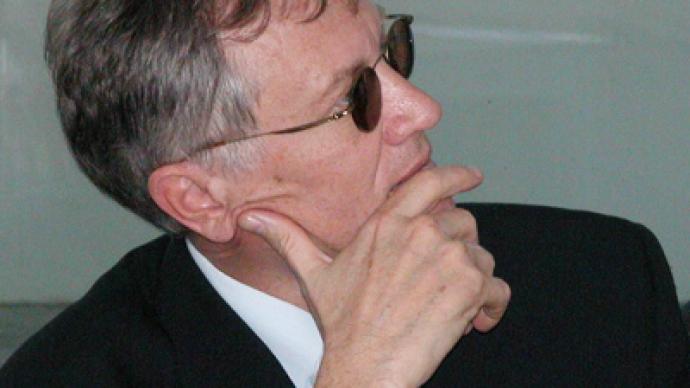
Newsworthy Pronouncements in and About Belarus
Publication: Eurasia Daily Monitor Volume: 11 Issue: 16
By:

Two sets of pronouncements cast light on today’s Belarus and at its possible foreseeable future. The first of these was uttered by Oleg Manaev, who was interviewed by an online opposition newspaper (gazetaby.com/cont/art.php?sn_nid=68538?). Manaev is the founder of the Independent Institute for Socio-Economic and Political Studies (IISEPS), an entity sponsored by the West that has conducted national polls in Belarus since the mid-1990s on a quarterly basis. According to Manaev, public trust in President Alyaksandr Lukashenka has been declining but is still strong. Before the end of the 1990s, his rating (expressed as a percentage of those willing to vote for him) was steadily above 60 percent, but today it is below 40 percent. According to Manaev, just as in 1994, when Lukashenka came to power, today the Belarusian president still reflects “not only the views and aspirations of a very large number of Belarusians but even their culture code.” Manaev believes that the root cause of this situation is the fact that the national identity of Belarusians has not yet taken shape. Consequently, people see the paternalist state as the only condition establishing some kind of a bond between them. A low level of interpersonal trust adds significance to that bond. In survey after survey, only 20 percent of Belarusians identify with the view that “one should trust most people,” while 70 percent feel one ought to be very cautious toward others.
Manaev personally does not believe that elections in Belarus are free and fair, and the number of Belarusians who share this belief exceeds the number of those who think otherwise by a factor of three to two. Elaborating on the deficiency of trust as one of Belarusian society’s most important features, Manaev recalls a statement made by a member of one of the focus groups surveyed by IISEPS for its research project “Youths in the labor market.” The statement in question reads: “[in Belarus], the employer always tries to deceive the employee, and vice versa. It is like a law of nature.” This statement was subsequently included in the December 2013 national survey and half of all respondents considered it to be true. To Manaev, this means that the authorities should not be uniquely credited with deception; rather, since the so-called ordinary people behave the same way, nothing would change if the people wielding power were replaced. Until society’s outlook shifts, a mere replacement of the person at the helm of power is not going to spell real improvement.
Manaev attests that most of the leaders of the opposition remain unpopular in Belarus. Only Uladzimir Neklyaev has increased his rating from 5 percent to 7.2 percent. This is because he is in charge of the movement (civic campaign Speak the Truth) that continues to seek new forms of communication with the electorate. When asked if 7.2 percent amounts to a considerable public support, Manaev reminded his interviewers that when Alyaksandr Milinkevich was chosen as the united democratic forces’ joint candidate in September 2005 to run for president in 2006, Milinkevich’s rating was just 2 percent. But six months down the road, Milinkevich actually gained the electoral vote of roughly 20 percent of the Belarusians. The latter statistic derives from several IISEPS surveys; the official number was 6 percent. This, according to Manaev, may imply that in 2015, Neklyaev can possibly win up to 30 percent of the vote—equal to the share of those definitely unwilling to vote for Lukashenka. And even though one cannot win the elections with 30 percent of the vote, a respective presidential hopeful may be viewed as a legitimate representative of a fairly significant number of Belarusians—a fact that nobody will be able to discount.
In his turn, President Lukashenka made several remarkable pronouncements during his January 21 meeting with the leaders of the 11 most popular domestic media outlets. During that meeting, Lukashenka revealed that an amnesty of about 2,000 people, out of the total of roughly 30,000 people behind bars in Belarus, will soon be announced (https://news.tut.by/society/383389.html). Among others, amnesty may be applied to Ales Bialyatski, head of the Viasna human rights center, who was sentenced for tax evasion. Lukashenka also acknowledged he was ready to release Nikolai Statkevich, one of the 2010 presidential hopefuls still in prison. Statkevich will be required to appeal for clemency, but an admission of guilt will not be necessary (gazetaby.com/cont/print_rdn.php?sn_nid=68460).
During the same meeting with journalists, Lukashenka elaborated on his attitude toward the Belarusian language. “I am not against the Belarusian language, absolutely not. I want even more than you do that our people speak Belarusian fluently. The only thing I do not accept is pressure. Once we start pressing people, their reaction will be the opposite of what we want,” said Lukashenka. He added that the issue of language is excessively politicized and that promoting Belarusian is only possible in a calm and subtle fashion. To the observation that too few books are printed in Belarusian, the president suggested that once a true Belarusian-language bestseller comes along it will receive generous support. So far, no such bestseller has been written (https://naviny.by/rubrics/society/2014/01/21/ic_articles_116_184323/). Lukashenka also described his relationship with Putin as extremely friendly but interspersed with contradictions. Russia, according to Lukashenka, is rendering true help “that we have to appreciate and by no means should we treat Russia badly.” Still, Russia is not uniform and “sometimes one has to show restraint” (https://news.tut.by/politics/383385.html). Later, Lukashenka declared his commitment to conduct the next presidential elections—scheduled for November 2015—“with utmost integrity” and even pointed out that “gradually the country should be passed to other hands” (www.gazetaby.com/cont/art.php?sn_nid=68466?).
According to the December 2013 survey by IISEPS, there are only two trustworthy social entities in Belarus, the Orthodox Church and the army. Those who trust them outnumber those who do not (https://naviny.by/rubrics/politic/2014/01/24/ic_articles_112_184353/). In the recent past, the presidency could be found within that category as well, but no longer. This being the case, projecting an image of a calm and confident leader ready to pardon his enemies serves the purpose of reclaiming trust—something that the Belarusian president succeeded at in the past.




